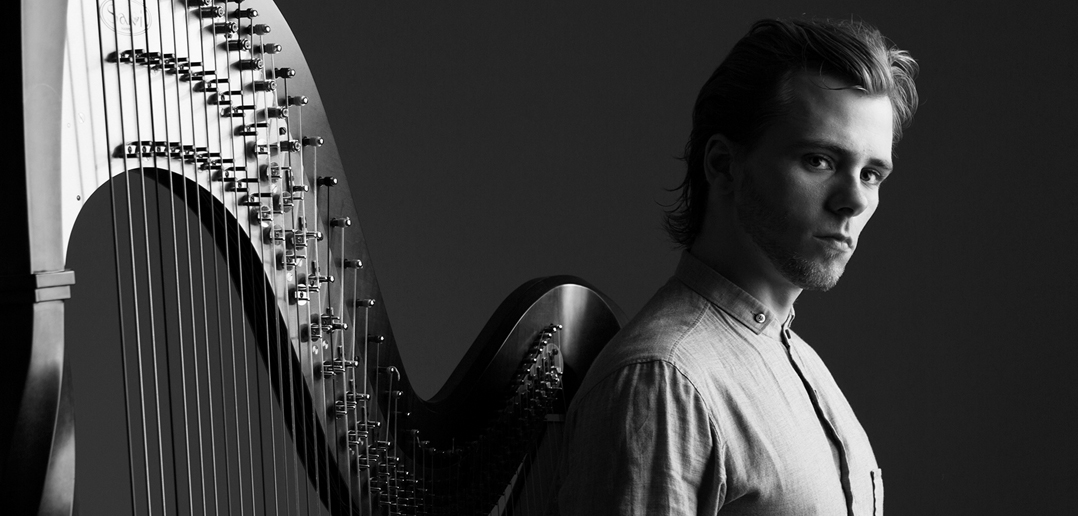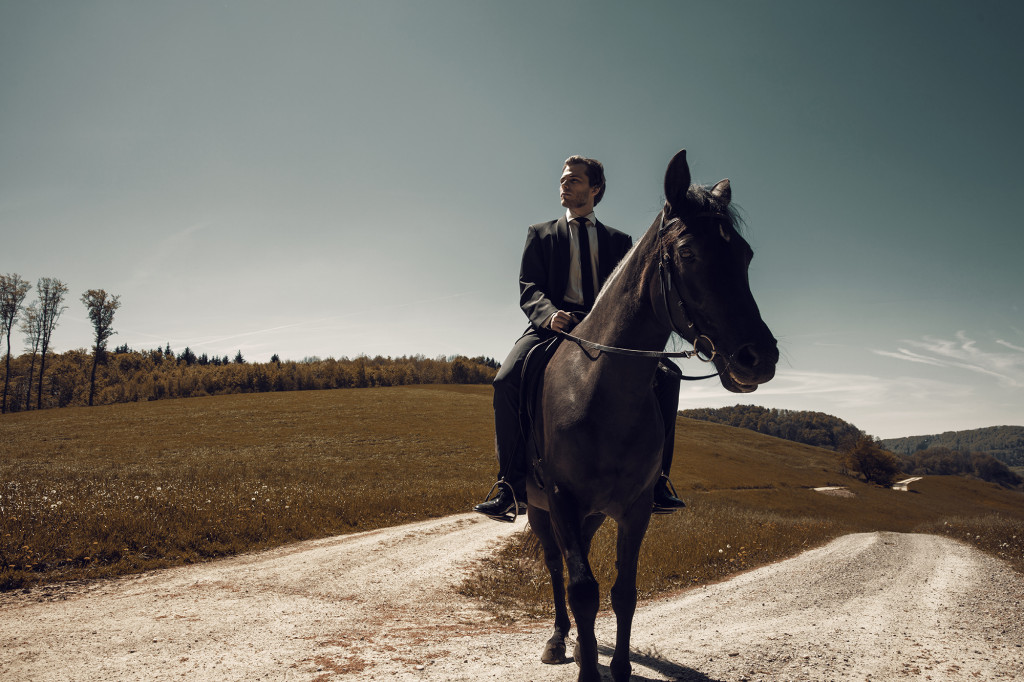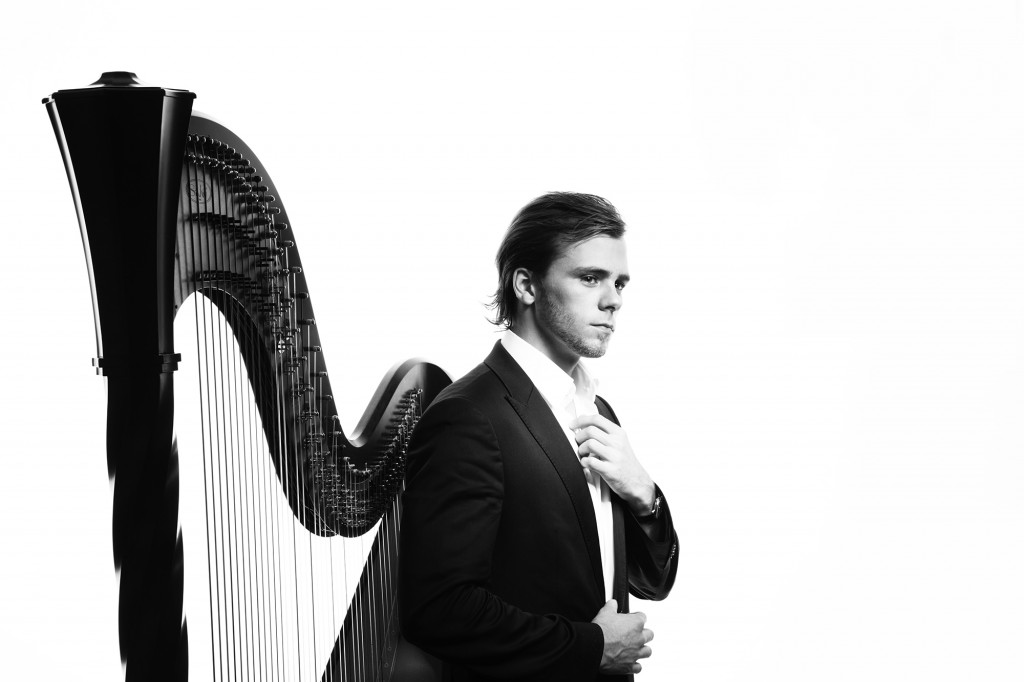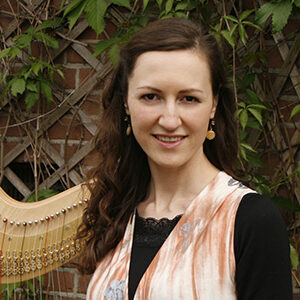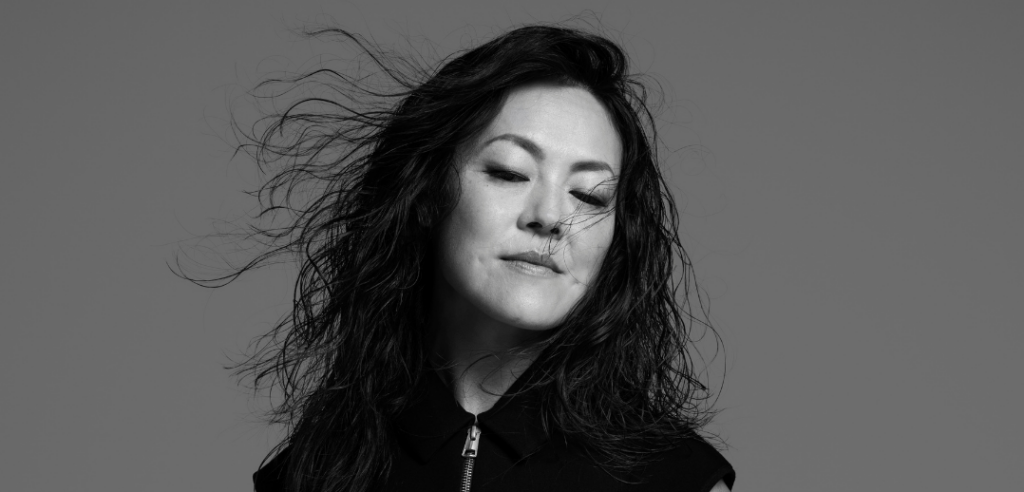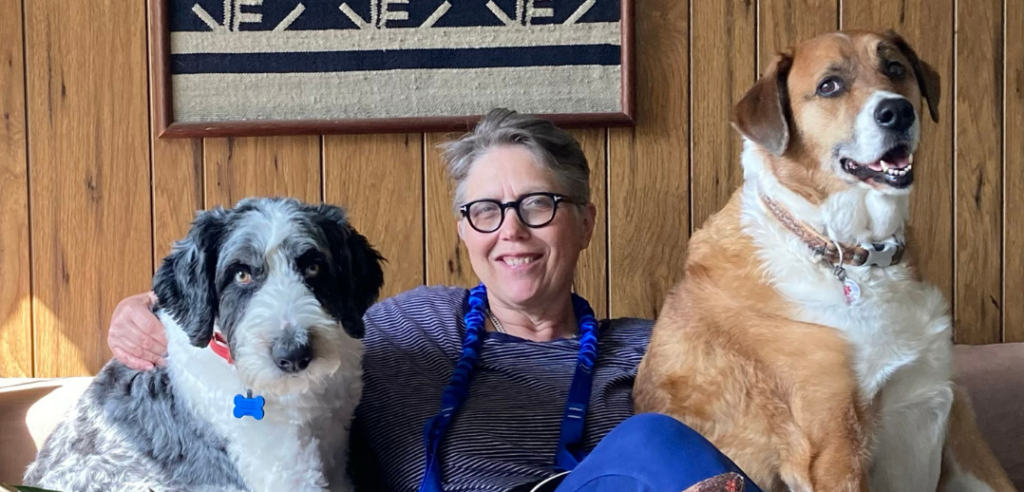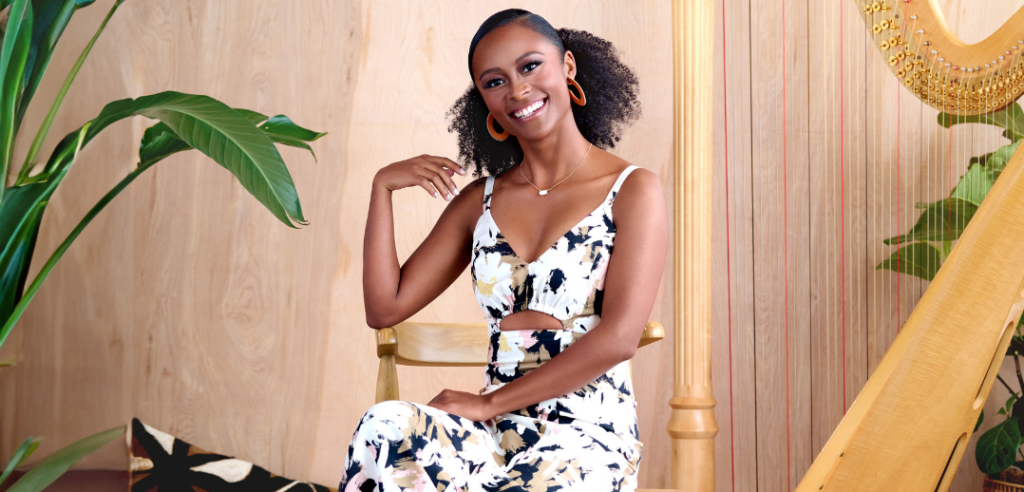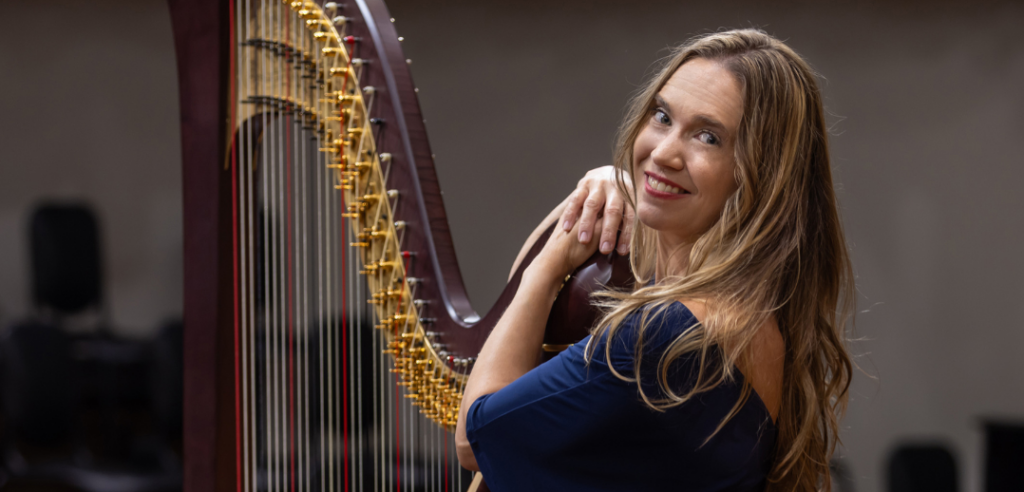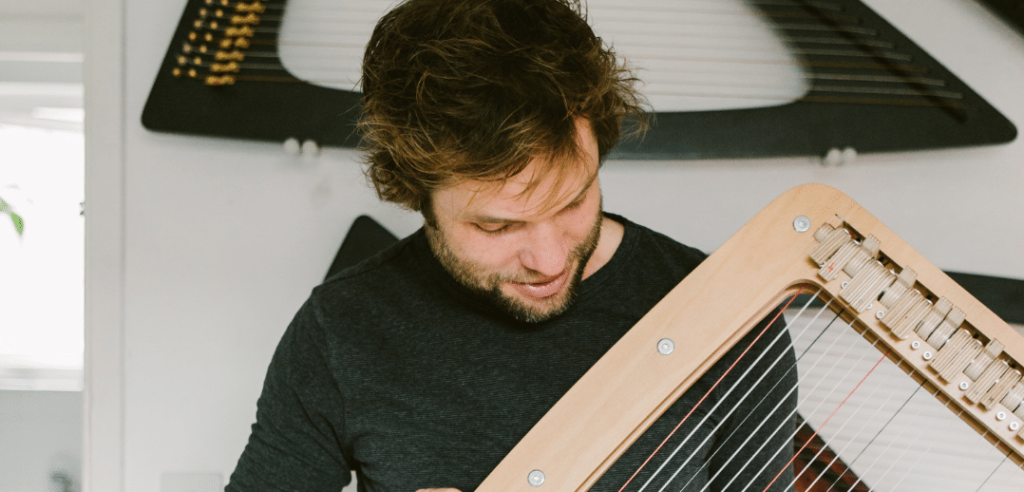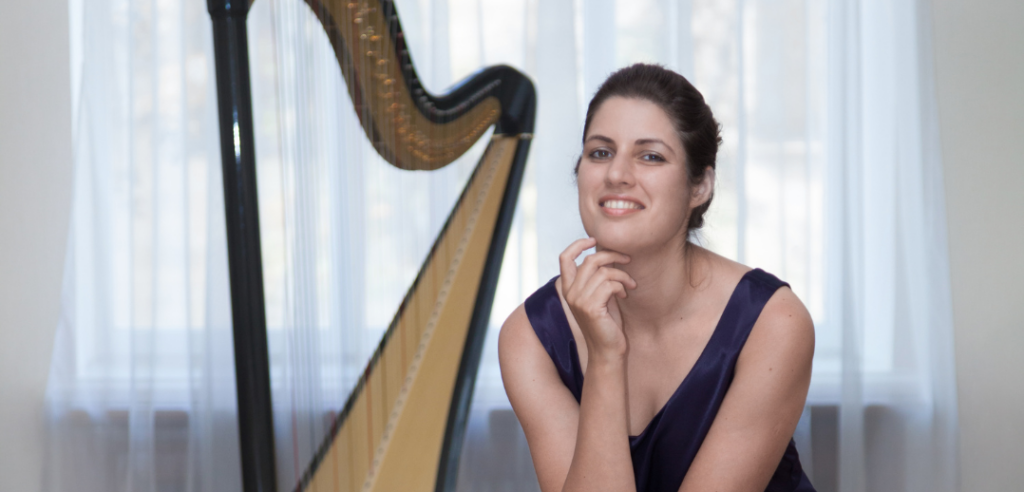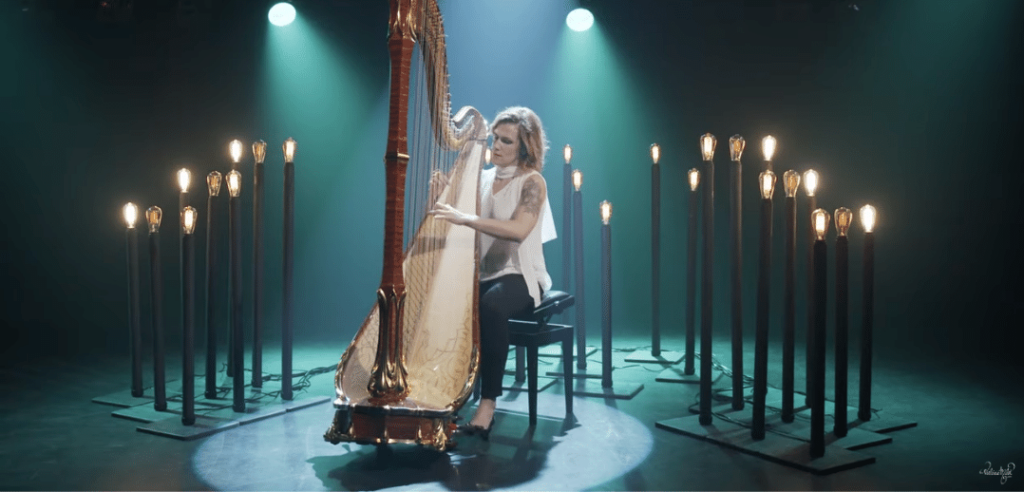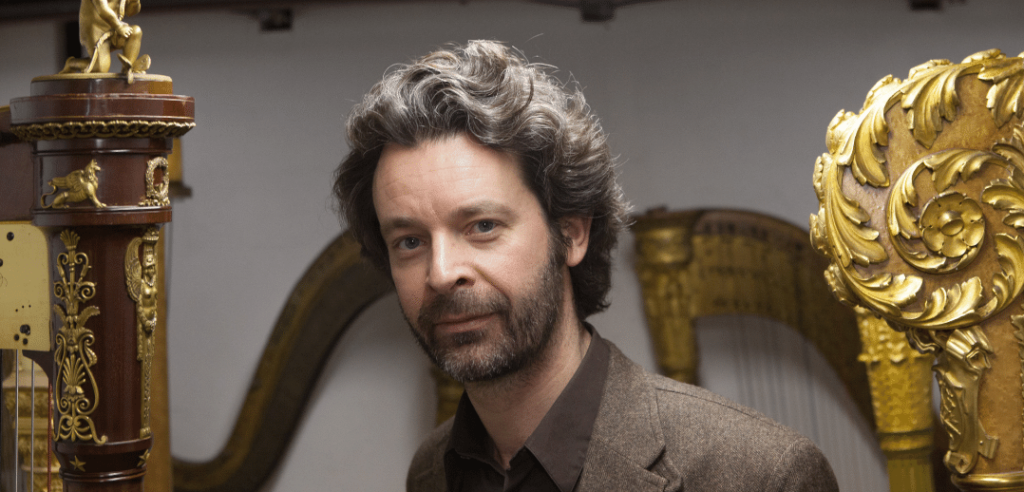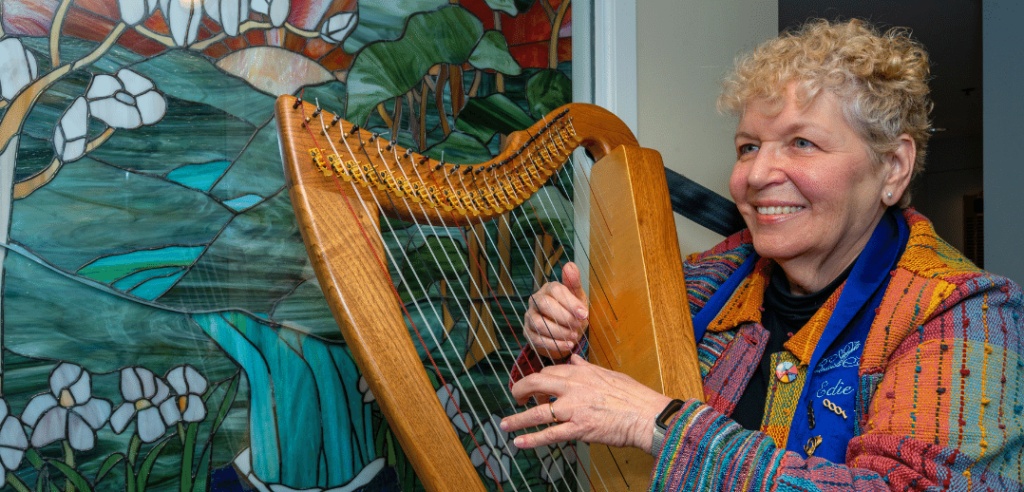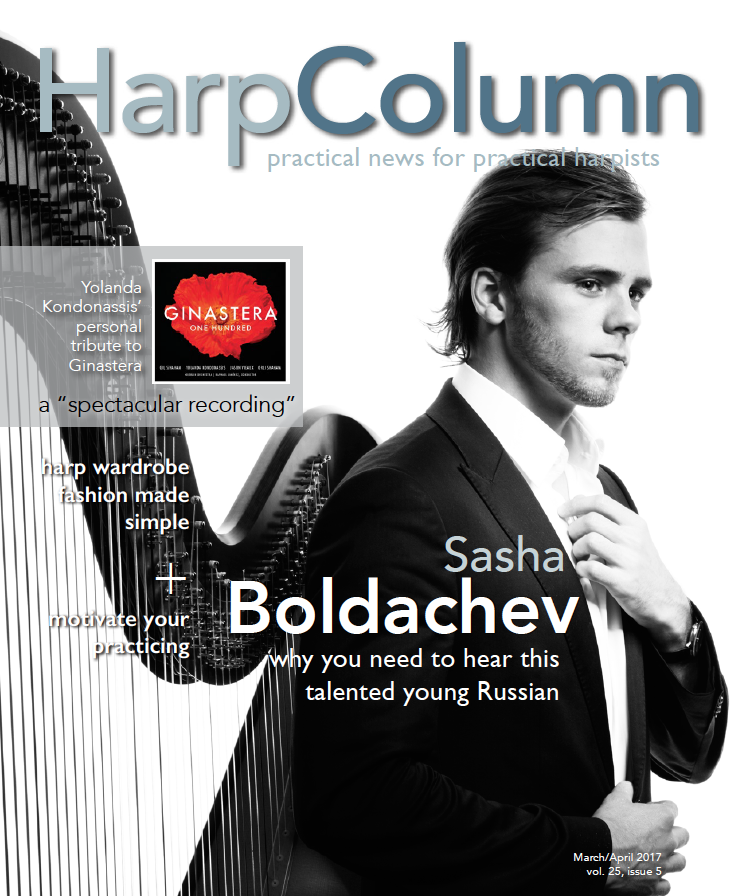You may not have heard of Alexander “Sasha” Boldachev before. This young Russian has, to this point, kept a fairly low profile in the United States, focusing his performing career mainly in Russia, Europe, and also partly in Asia. But now that you know his name, do yourself a favor and go listen to him play. Hearing him live isn’t an option for most, so start with his Petrushka transcription on YouTube, or maybe his fantasy on themes from Scheherazade. You won’t want to stop there though, so be sure to check out his improvisational take on Bach’s Toccata and Fugue, and of course his medley of Star Wars themes with his latest ensemble Game of Tones.
But before you get lost down a YouTube wormhole of his videos, read our conversation with the man behind the music. Harp Column’s Elizabeth Jaxon caught up with Boldachev on a cold January afternoon in Zurich. Planning a meeting with this guy is no easy task. His travel schedule would leave even the most frequent of flyers out of breath. He splits time between Moscow and Zurich when he isn’t traveling for other concert engagements (which he usually is).
Born and raised in Russia to a pianist mother and a philosopher father, at age 11 Boldachev’s exceptional musical talent caught the eye of French harpist Catherine Michel who invited him to come study with her. He continued his studies with Michel until earning his diploma from the Zurich University of the Arts.
Boldachev’s music is as boundless as his traveling. His compositional prowess allows him to be unrestricted in his repertoire choices, and his creative drive has led him in all musical directions—he is as comfortable playing film scores as he is transcribing opera fantasies. As if his musical versatility weren’t impressive enough, he’s also multi-lingual. Boldachev was gracious enough to do this interview in English, which is not his first language.
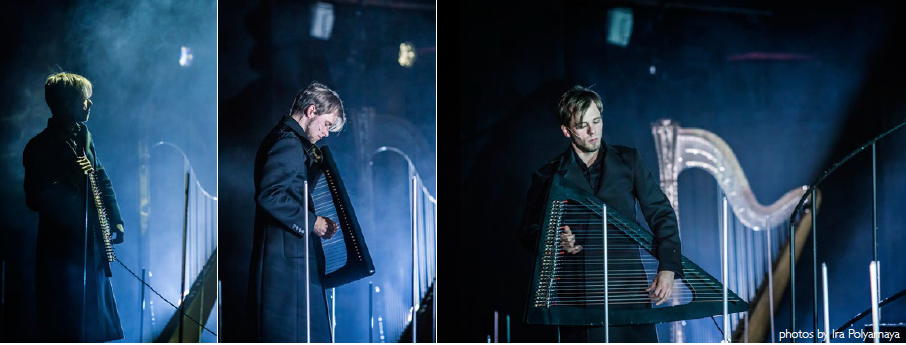
Harp Column: Thanks for squeezing this interview into your incredibly busy travel schedule! In just the past couple of weeks, you’ve been to Zurich, Moscow, and Rome, and you’re about to fly to Los Angeles tomorrow. What’s on your concert schedule for this month?
Sasha Boldachev: Almost every month is different for me. My dream schedule is to have one month full of work and the next month free to practice, to compose, and to think about new projects. I’m almost at that point. This year, I started working hard from the first of January, and I’ve had rehearsals and concerts every day this month. So far, I’ve been on tour with the Glière Concerto, had solo recitals in Switzerland, my theater show in Moscow, and a huge Russian Ball in Rome. Starting in February, however, I have almost nothing—just a few concerts in Moscow—so I will stay there to work. Then in March, it will be back to the craziness all over again. That’s what works best for me.
HC: It sounds like you’re back and forth between Moscow and Zurich a lot. Where is home for you?
SB: Actually, I don’t know. For the last 11 years, I’ve been in Zurich, and I still have a lot of work here. But since October, I’ve also been living in Moscow, as I’m an artist-in-residence at the Bolshoi Theater. I also spend a lot of time in France. So, I don’t know. For now, I feel like I’m mostly living on airplanes and concert stages. [Laughs]
HC: How are you planning to use your free time in February?
SB: Oh, that’s a good question. I especially need to finish my second harp concerto. The first one, In Memoriam, was for harp and strings, dedicated to the victims of the Paris attacks on November 13—I actually wrote it that very night. But this one is with a full orchestra, which is going to be a challenge. I also need to work on other projects: a new theater piece and also, for the first time, a full, one-act ballet. So, February is for composing and practicing. When you’re traveling, you cannot practice. I don’t know how Rostropovich did it. I mean, when you play concerts every day, of course it’s great for your purse, but it’s bad for your technique. I don’t usually have the power or motivation to really practice when I’m touring; I just try to stay concentrated and do basic finger workouts. Concerts don’t count as practicing—they’re the result of practicing.
HC: I didn’t realize you were composing so much. What is your approach to composing for the harp?
SB: As you know, when I was 6 years old I wrote my first piece. (I brought it to my parents and got a candy as payment.) The process was just as sudden then as it is now. I get an idea in my head for a piece I would love to play—it’s like I can hear it being performed in front of me—and then I just have to write it down.
HC: What was that first piece?
SB: It was based on the story of The Wizard of Oz. Actually, I am a big fan of program music—music which is based on something, like a painting or literature or a feeling. That has always been my approach; I choose a topic, and I compose. For example, one of my last solo pieces was “There Will Come Soft Rains,” based on the short story by Ray Bradbury and the poem by Sara Teasdale. It will be published very soon, by Lyon & Healy in the United States. It’s something modern, but still beautiful. [Laughs] I’m sorry to say that, but I think (and this is a message to composers) that we need to find the balance between modernity and beauty.
The main point of my compositions is to show that you can make music however you want and that the harp can do much more than you imagine.
Now, things are more complicated—I’m a little bit older. Now, composition is the way for me to find the harp in different spheres. My last big job was a theater piece with a very famous Russian director, Kirill Serebrennikov, and the legendary actress Alla Demidova. It was based on the poems of Anna Akhmatova. I made use of three different kinds of harps in the piece—the very old English harp, a brand-new Salvi Minerva, and the Delta harp (which was still in its prototype phase at the time)—and the piano. I played all those instruments, walking around between them. For the audience, it was something new. The main point of my compositions is to show that you can make music however you want and that the harp can do much more than you imagine. That is another topic we can get to later.
HC: So, it sounds like your ballets and theater works also have a story behind them.
SB: Yes, and even my new harp concerto. For the concerto, I choose the theme of the Romanov family. And for the ballet, we still need to meet up and to discuss that, but the last topic was J.R. Tolkien.
HC: A specific work from Tolkien?
SB: That I will not tell. [Laughs]
HC: Tell us about this crazy ensemble of yours that’s recently appeared on YouTube covering the Star Wars theme and other film music—the Game of Tones. What’s the story behind that?
SB: A long time ago, in a galaxy far, far away… we started the Game of Tones. The initial inspiration for the Game of Tones came from the Piano Guys and 2CELLOS. I saw their videos, and I wanted to do something like that. But it’s very difficult to find the right person to work with; there’s so much that’s up to chance. The Game of Tones began as a duo with violin. The violinist, Alexander Kuznetsov, is a very good musician and also a great friend of mine. We started rehearsing together, we made a program, made a few videos, recordings, a CD, but then he got married, he landed a position with an orchestra, and he’s going to have a baby very soon. To do such a thing like 2CELLOS, you know, you need to be 200 percent free—night, day, Christmas, New Year’s Eve, whatever—both of you.
So, for Game of Tones, I’m currently focused on looking for new combinations, like harp and dance, harp and painting, or harp and acting, and our representative, my Russian impresario, Mikhail Yarush, helps me a lot. I want to prove that the harp can be anywhere and do anything. That’s the underlying philosophy. My instrument is the harp, and the harp was yesterday, today, and tomorrow. The harp is the oldest instrument, and it gives us the biggest possibilities. But our mistake, as harpists, is that we somehow confined the harp to the realm of hotels and orchestras. We can say what we want, but if you ask anybody in the world—normal people, and even musicians, even musical experts—where do you normally see the harp? The answer is in the orchestra and in hotels.
HC: I know what you mean. Just this morning on my flight over, I was having a conversation with the passenger next to me, and when I told him I was a harpist, he said, “Oh the harp, yes, I recently saw a harp in a hotel in London.”
SB: Yes, and there’s nobody to blame, but unfortunately it is the current situation. Sure, we all need to work, but in the time of Parish Alvars and Bochsa, the harp was becoming an international instrument—Grandjany and Zabaleta toured everywhere—and it was not only an orchestral instrument. This is a recent problem. Historically, you see that when the harp became popular in all the rich families in England, France, and Russia, especially among young women, playing the harp was one of the main things which girls in rich families learned to do. And then you have the 20th century with all its wars and problems. I think resurrecting the popularity and the image of the harp is a recent challenge, but one which we are up to. That’s what I’m trying to do, to show that the harp could be much more popular, more open, brighter, and be treated like a solo, concert instrument. That’s really what we need.
HC: What steps are you taking, yourself, to bring the harp to this level?
SB: First of all, through transcriptions and fantasies. We say that we have a problem with repertoire—that’s what we say. If you speak with Catherine Michel, she will tell you that we have no problem because there is a huge amount of unknown repertoire written for harp, which you can play and play for the next 50 years. Yes, there is a lot, but the quality is not always so good. So, we can either find new pieces which are good, or transcribe and bring famous melodies to our repertoire, which is what I’m trying to do as well. I’ve completed fantasies on the themes of orchestral works, like Scheherazade [Rimsky-Korsakov], the opera The Demon [Rubinstein], and Petrushka [ballet by Stravinsky], as well as arrangements of the greatest Russian repertoire, from Glinka to modern composers like Sergei Slonimsky.
These days, I’m still thinking about transcriptions, but I would like to also concentrate on composition, to show something new, something interesting. I must say that transcription is a very sensitive topic. I mean, for example, I’m happy that the music by Chopin that we normally play on the harp—the Fantaisie-Impromptu—sounds quite good. It’s good. Liszt, not always. Rachmaninov, maybe. Better not. This is a big danger, because I see a lot of transcriptions for the harp which are either much easier than the original or trying so hard to reach the original that they are too difficult: too many noises, too many mistakes, too many pedals, etc. And this is a big problem because, with these kind of arrangements, we don’t show the harp in a good light.
A young harpist wrote to me recently: “I’m going to play Rachmaninov’s second concerto on the harp! I’ve spent the last half year learning it.” I think that’s great, but I can already imagine the result. Harpists will think, “Oh cool, someone is playing the Rachmaninov Second Concerto for piano on the harp. I want to hear that!” Maybe for harpists it will be interesting. But for most people it will only be interesting in the sense that such a limited and awkward instrument as the harp is able to tackle the Rachmaninov Second Concerto. People are already familiar with this concerto, and so they will only hear the limitations of the harp with respect to the piano. For myself, you know, regardless of how it’s been transcribed, I never will believe that a harpist can play this concerto. We can play different things, but not this concerto. That’s the biggest danger, that we will just show through transcriptions that the harp is a limited instrument. I’m just sad to think that someone so talented would work so hard only to achieve such a result.
HC: Hopefully with your transcriptions you’re able to find the middle ground between too easy and too difficult.
SB: That’s my goal. Maybe I’m making some mistakes, I don’t know. Petrushka was already on the borderline. In some places, I need to push down the tempo a little bit; in other places, I had to make some cuts. Petrushka took me a lot of time to transcribe and to practice, but actually now I’m quite happy with the result. It’s recorded on France Musique, and it’s on YouTube. I think people who listen to it will realize that the harp can make a lot of different sounds. That was my point with Petrushka, to show here is violin, here is balalaika, etc., all possible on the harp.
HC: You also have a CD called The Harp as an Orchestra.
SB: Yes! That was funny, because I did almost the same thing at the same time as Emmanuel [Ceysson]. Emmanuel made an album of opera music, and I did orchestra music. The track listing includes Faust [opera by Charles Gounod], Eugene Onegin [opera by Tchaikovsky], and the Moldau [symphonic poem by Smetana], also my fantasy on Scheherezade and some pieces by Paganini and Mozart. That was the first CD, and the second CD was with Russian pieces.
HC: From Russia with Harp…
SB: Yes, and my next CD will be dance music on the harp. I would love to release recordings of the pop, rock, and film music that I’m playing now, but I’m not a billionaire, and I cannot pay all the rights for that music.
HC: Ah…that is an issue, true. And you were starting to do some of that with the Game of Tones.
SB: With Game of Tones we have a CD which includes some film music, of course not Star Wars or the Pirates of the Caribbean—that’s hopeless—but those are on YouTube. I hope I can find a way to go forward with this violinist, Alexander Kuznetsov, but I’m also keeping my eyes open for something even more crazy and interesting.
HC: Switching gears, I want to ask you about your education. You come from a very different background from most harpists. What’s it like growing up and learning harp in Russia?
SB: I started with the piano when I was three or four years old. My mother, Irina Sharapova, is a pianist and one of the best accompanists, so there was always piano and a big herd of singers at my home. But she never wanted me to be a pianist because there are too many pianists. Every year, at least 10 of her students graduating from the conservatory wouldn’t be able to find a job. She thought that I might be a singer, but then I became a harpist.
I was lucky because my mother is a brilliant teacher—I mean, for any instrument, but especially for the music itself. She would practice with me almost every day and, as a non-harpist, her focus would always be on the music. She wouldn’t accept excuses. I mean, if I was buzzing, she would say, “Sasha, do something.” And if I would say, “Oh, I have too many pedals, it’s too difficult,” she never cared about that, because who cares? I knew I could bring those difficult passages to my harp teacher, Karina Maleeva, but with my mother it was just pure musical work. That helped me a lot, even though I fought against her all the time. Only now do I understand what a difficult kid I was, but recently she told me, “Now, when I listen to your concerts, I can rest. At last!”
In Russia, there has always been a high level of discipline and very good theory education: solfege, history of music, etc. My first music theory and history lessons were when I was 7 years old. That helped me a lot because, later on, when I was traveling and performing, I didn’t have as much time to study. When I came to Switzerland, I found out that the students here start learning theory only once they enter the conservatory, or later—18 or 20 years old. This is a little bit late; but it’s a completely different world. For me, that was my time to find myself, develop my maturity, and start doing something with my career.
HC: It was Catherine Michel who brought you to Switzerland, wasn’t it? She was an influential teacher in your life. How did you meet her?
SB: I met her in Deauville [France], when I came to play at the Lily Laskine competition—she was on the jury. Catherine Michel is the person who taught me about the French “school.” And I found her way of playing incredibly inspiring. I started to study with her privately in France when I was 11 years old, then I moved to Zurich when I was 15 and joined the conservatory where she teaches. So, I was with her for more than 12 years. She could be difficult, but it was always because she wanted me to give my best. The best compliment I’ve ever gotten from her was, “You play exactly as I wanted you to play, and I hear the sound of my teacher [Pierre Jamet] in your playing.”
It was also at the Lily Laskine competition that I met Victor Salvi. Victor became my good, good friend. In fact, the whole Salvi family did, even the workers in the factory. Salvi’s harps are not only the best harp for me—I mean, I’ve played all different kinds of harps, and I still think that, in terms of sound and technical abilities, Salvi harps are the best for me—but the Salvi team was like a family for me at the time.
You know, education for musicians does not just happen during the hours at the instrument; that’s just your technical training. Your musical education could be anywhere. You can learn from having a conversation with someone, taking a walk in the mountains, even doing your everyday stuff, or visiting an art gallery. Everything is useful to grow up as a musician.
HC: That’s a beautiful thought to keep in mind. So then, once you came to Switzerland you started developing your performance career?
SB: Yeah, you know, I never had a real manager. All the concerts I have, everything I’ve ever done, I’ve done by myself. I’m the one making contact with people, buying tickets, booking hotels if needed, constructing the program, discussing the details, etc. This takes a lot of energy, and maybe I would be much happier and more successful if I had a good international agent. But the good side to it is that, when I do everything by myself, I have more control over my schedule and programming and can adapt them however I like. For me, it’s a kind of art—finding the concerts and feeling out the right approach for the public in that country, in that city. I find it really interesting, but exhausting.
HC: How would you describe your relationship with your audiences?
SB: You know, I’ve found that the perfect relationship disappeared somewhere in the 20th century. Before, we used to have salon concerts (which are now also coming back in some places). And in a salon concert, you speak to the public, you describe why and how you are going to play your pieces, and you tell them things they cannot read on the internet. If you play Beethoven, for example, anybody can look up his biography and read everything about his music. But, if you explain why you choose this piece for today and you tell the audience about your own personal approach for the piece, it brings people much more. Compare that to an academic concert, where you come on the stage in silence and you play 24 Chopin etudes or mazurkas or whatever. That’s nice, you know, I like this music, [Laughs] but not when it’s a whole concert of just Chopin, Chopin, Chopin!
While we’re on this topic, another thing I think is important is that we need to train our audiences. Every time we perform, we need to show that we are doing something new, that we’re going somewhere. This is how we will gain listeners. Maybe this is a little bit rude of me to say, or impolite, but we harpists are still mostly doing small things in our own small world. First of all, take harp festivals. I don’t mean that this is the case for all of them—some people do a very good job with marketing—but most harp festivals, even the World Harp Congress, are “by harpists, for harpists.” (And their friends, and maybe family, if they come. Most of the friends don’t come, anyway. “I am your friend, but why should I care about the harp? I’m not going, sorry.”) It’s very sad, because I don’t see any progress. I don’t see that we are doing something new. I mean, [at the World Harp Congress] in Hong Kong, the main concert will be Debussy, Ravel, and Mozart. I’m sorry, why? [Laughs] I mean, [the performers] are great musicians, the best of our time—Xavier [de Maistre] and Isabelle [Moretti]. They are great musicians, so why these pieces? They have a huge repertoire. Why? To show that there are great classics written for the harp? And I think that most of the audience there will not understand Debussy or Ravel. Debussy is what you play for 50 people drinking wine in a small room, tasting every note because they know who Debussy is, they know his music, they know the stylistic era. It’s music for connoisseurs, not for a huge audience. In Hong Kong, the harp is still not so popular.
HC: What would you do in that situation? You’re in China, you have a big audience, and you have one chance to show the harp. What would you play?
SB: Last time I was in China, I brought an extremely varied [solo] program, from Bach transcriptions to Adele’s “Skyfall.” If there is an orchestra, it depends on the artist, because everybody has their own strong pieces, but I would say something like the Nino Rota concerto, John Williams’ concerto, Tailleferre’s concertino, the Finnish concerto by Rautavaara, even the Parish Alvars concerto. Okay, Parish Alvars is maybe not the most famous composer, but his concerto shows a lot of the harp’s capabilities. You get to see the harp playing melodies and huge passages—you know, like the Grieg piano concerto. It’s huge, and you either like it or not, but it gives people some kind of image of the harp. Maybe not the best image of the harp, maybe it could be better, maybe the best concertos are still not written for the harp, but still… There is a lot of music. We need to explore—we try one concerto, maybe it works, we try another concerto, okay this one doesn’t work, so we’ll try another one. We need to try different things.
HC: How would you determine if it worked? What’s your definition of success?
SB: Success is when your audience is inspired to come again. If they find out about the next harp concert in town, they think to themselves, “I should go to that.” This is the ultimate standard of success, for the musician or for the instrument. For the musician, it’s also a success if the audience will come next time, and bring their friends. This is how you build your audience.
HC: What kind of music do you like to listen to?
SB: Everything, just everything. Mostly I listen to old rock or pop music, like Deep Purple, Red Hot Chili Peppers, Pink Floyd, Nirvana… That’s what I mostly listen to. And of course, classical pieces. I listen to all kinds of classical music, from really old, old, old, before the Renaissance even—like Gregorian motets—to modern pieces just recently written. I like to listen to electronic music too, especially now that I’m doing something with harp and electronic music. It’s interesting for me to listen to different combinations, to see how it works. There is sometimes not even enough time to listen to music, and not enough power. Sometimes I love to be in silence. [Laughs] But I don’t have a preference for any one kind of music.
HC: When you go to L.A. tomorrow, you’ll be doing a project with the Delta harp. I’d like to hear more about that. How did you find out about the Delta harp?
SB: First of all, I saw that Remy [van Kesteren] has been playing a strange new kind of harp, so I listened to some of his recordings, and I liked what I heard. I’m not really in contact with Remy, but I do wish to be. We just never had the chance to meet up or to work together.
Then, when I became the exclusive artist of Salvi harps, they asked me to learn some pieces on the Delta to present in China for the NAMM show [National Association of Music Merchants]. That seemed to go over well. So now, I’m working with the Delta harp to find the best way to present it. It has the potential to be an important instrument in jazz, pop, and rock groups. Why? Because it’s everything in one instrument; you can play melody, bass, solo, you can use filters, distortion, or whatever to change your sound. At the same time, it allows for a high level of technique using both hands, which isn’t possible on the guitar. If you play a fast melody line on the guitar, you cannot then also play the harmony at the same time. On the Delta harp, it’s possible. I mean, on any harp it’s possible, but the Delta harp also looks cool. It could be a symbol of the next step of evolution for our instrument. We have the [Lyon & Healy] Silhouette, the Camac Blue, and now the Delta is also taking a new approach. So in L.A., I’m just going to try my best to show it off, and hopefully it will capture people’s interest—people who wouldn’t normally go to a regular harp concert.
HC: What are you going to be playing in Los Angeles on the Delta harp?
SB: I’m going to play my own pieces and some old rock songs—the Beatles, Deep Purple, AC/DC, Metallica, Bob Marley, etc. I sing a little bit with the harp, and I improvise. I’m going to play a set with drums. Maybe I will find some other musicians there to jam with. I’m free to show off the instrument, so we’ll see what happens.
HC: Good luck! So, what is the concert you’re playing tonight?
SB: Tonight, I have a solo concert in Zurich. It’s not a huge one—it’s actually a salon concert. The audience won’t be big, it’s not the Tonhalle [main concert hall in Zurich], and I know most of the people who will be there. But you know, I haven’t had this kind of concert for a long time in Switzerland, so I want to present my new arrangements and compositions and show that I’m still alive and that the music is still alive.
Improvisation is also something I want to talk about. I improvise at almost every concert, and based on what I hear from the audience, it’s quite a valuable thing. It’s a way for me to express myself through the music. Normally, I don’t know even what kind of music it’s going to be. Sometimes it turns into something very modern, sometimes it’s classical or pop, sometimes it’s authentic Russian music. I just take a theme and improvise around it. It also gives me a way to show all the different sounds we can make on the instrument, with the [tuning] key, pencils, everything: knocking, grabbing, scratching. It’s interesting for the audience. Not everything can fit in one piece, but in a free improvisation you can usually find a way to show it.
HC: How long have you been improvising?
SB: For the last two years. Normally, I do it as the final piece of my program. It may not be as outstanding as playing Piazzolla or Paganini as a last piece, but it’s something that truly expresses who I am in that particular moment.
HC: It’s certainly more personal that way. For readers who might be interested in trying it out, what advice would you give to people who want to improvise on the harp?
SB: I have to say, I prefer improvising on the piano. That’s much easier, because I have everything under my hands—all the harmonies, everything. On the harp, it’s difficult because you have to juggle the pedal changes in your head and always know what key you’re in. The easiest way, if you want to give it a try, is to first choose a “theme.” The theme is not necessarily the melody—it could be a rhythm, it could be a chord progression, anything. You first just repeat the theme a few times, and then you start to move away from it, but you still remember the theme. As you wander in new directions, you discover what you’re capable of in the moment and how free you can be. And then, you come back to the theme. It’s a little bit of a rondo style, let’s say, but it’s the easiest way. And then you try to change something within the theme, maybe find a new chord or new melody. It’s like building with blocks. In those moments of freedom, if you’re out of ideas and you’re stuck somewhere, then you just put the first block back in place and you’re home, standing on firm ground.
HC: What are you plans for 2017?
SB: By the end of January, I will have a new program ready. It will include my latest transcriptions: Petrushka as well as some pop and rock. I am preparing a few etudes for the harp, so I also want to publish an album of etudes. My dream, actually, is to make a method for the harp, drawing from the Russian school, the French school, and everything I’ve learned from different professors. I want to find the best way to explain the harp to students. Violinists have their standards, but we don’t really have standards. If you go from school to school, from country to country, you see that everybody learns to play a different way, and there is no particular standard. With violinists, I see that they also all play differently, but they first learn the standard and then change. My pianist and violinist colleagues are always telling stories about the school and discussing what it’s all about. Harpists may talk about it but not really so much, and not so deep. I hope to do this work, but maybe much later. Maybe I need even more experience to be sure that I will not make any mistakes. If I take any responsibility, I want to be sure that I am doing it right.
I also have a few collaboration projects in process, like harp with drum and bass, and harp with fresh electronic music. I have started collaborating with a hip-hop singer—Philo—who is becoming known in L.A. I arranged a few numbers with him. But it’s all very, very slow with his producer. I don’t know why, but it’s really slow. My hope is to somehow make a single with him, or an album, but I don’t know when that will happen. You know, when the ball is in my court, I can plan time into my schedule to finish things. But when a project depends on somebody else, it’s horrible. You have to wait so long that sometimes you lose interest.
I will also give some masterclasses in 2017, in France, and in Holland, Italy, Switzerland, and Japan. I really would like to communicate more with my harpist colleagues. My job is mostly concentrated in Europe and Russia, partly Asia, but there is a huge harp community in the United States, and I don’t really have access to those people.
HC: Well, I think this interview will certainly help introduce you in America!
SB: To summarize, I just want to say that, in our time, we all have a responsibility to our instrument. You have your responsibility [at Harp Column], and you’re doing that great, because this magazine looks really professional, as it’s supposed to be. Everybody has their maximum limit, of course, but we can push those limits. It’s a difficult job, but from now on, we really need to be near our limits. We need to continually strive to do better, and not just keep playing the harp at the same level. I’m not so easy on myself. I blame myself for all opportunities I’ve lost, all the time I’ve lost. Now, I’m trying to turn what I’ve been dreaming about into reality. Every moment that I touch the harp or pick up my pencil to write music is a chance to work toward something better, not even just for myself but for the harp and the future of the harp. I hope that we can all be united to reach a new level. •






